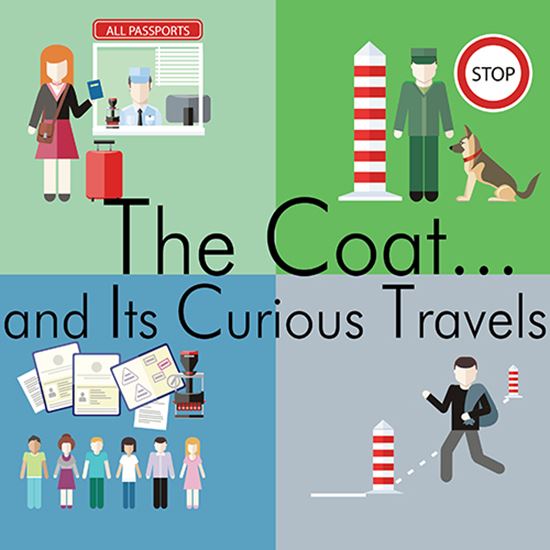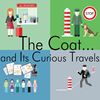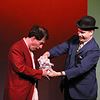


Coat...and its Curious Travels
Ever forced to wait and wait…and wait? Want to scream at nonsensical bureaucracy? Then you’ll sympathize with Mr. Poosch who, after he accidentally leaves his well-made coat in the country to the North, finds tremendous hurdles when he attempts to get it back. First, he cannot obtain the right paperwork to travel, and then, when he finally arrives, it is Sunday and the country is closed on Sundays. A homeless man finds the coat and finds his luck turns around while wearing it. Meanwhile, poor Mr. Poosch finds himself broke, hungry, and laboring in the street. He’s even mugged by a dog! Finding he doesn’t much care for a life of fame and money, the homeless man gives Mr. Poosch his coat after an accidental meeting. While Mr. Poosch finally and happily returns to a stable life, we see bureaucracy hits full swing with another victim! Full evening.
Productions
Behind The Scenes
PLAYWRIGHT NIKKI HARMON TALKS ABOUT HER PLAY
THE COAT…AND ITS CURIOUS TRAVELS
Q: WHAT INSPIRED YOU TO WRITE THIS PLAY?
A: I was married to a Canadian. We lived in Toronto and I'd make trips back and forth to NY several times a month. The border crossings ranged from normal everyday crossings to strange and hilarious. As a "landed immigrant" I spent a lot of time in the immigration department working my way through the system and chatting with others while we waited and waited . . . and waited, while living in Canada as a "foreigner."
Q: WHAT'S YOUR FAVORITE PART OR LINE IN THE PLAY? WHY?
A: I love the scene with the dog. One of my favorite playwrights is Caryl Churchill, especially her play "Mad Forest," which has a scene with a vampire and a homeless dog. That was the inspiration for the dog scene.
My favorite line in the play is the curtain line. "No! Wait! Where are you taking me? I tell you I am the Senior Border Guard. My papers are in my coat." It brings the story full circle and the audience knows that the same thing is going to happen to someone else.
Q: WHERE DID THE CHARACTERS COME FROM? ARE THEY BASED ON PEOPLE YOU KNOW?
A: When I write, the characters talk in my head and I write down what they say. They even tell me their names.
Some of the scenes are based on things that happened to me, like the Office of the Underemployed (they are very serious about people standing behind the white line!) Many times I've walked into restaurants dressed in cut-offs and tee-shirts and other times dressed to the nines, and have been seated according to my attire, and waited on the same way in stores.
Q: WHAT DID YOU TRY TO ACHIEVE WITH THIS PLAY?
A: To get people to see government bureaucracy (the same in every country) with a sense of humor and wonder, in the way that Eugène Ionesco and Dario Fo do in their plays. It not only helps you deal with frustrating situations, it give you a good laugh too.
And to say that you shouldn't judge a person by the cut of their jib.
